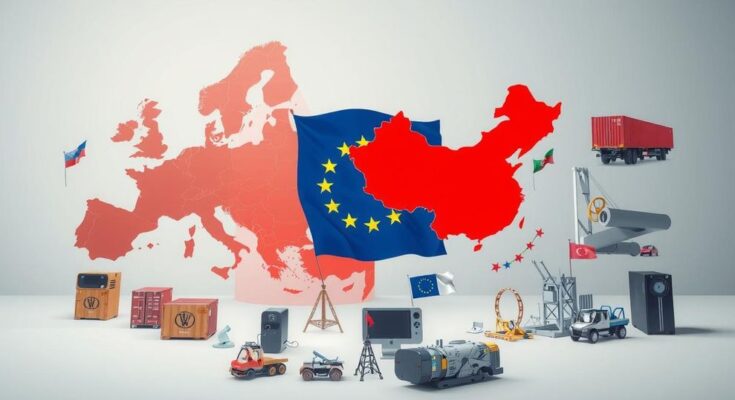Poland’s Trade Minister Michał Baranowski insists the EU will not turn to China amid US tariff discussions. Despite pressures from China, Baranowski asserts Europe is focused on strengthening ties with the US and aims for an ambitious trade agreement. Tensions with Beijing persist over export restrictions and competitiveness. The EU may retaliate against US exports should negotiations fail.
In the latest news from Rzeszów, Poland’s Trade Minister Michał Baranowski stated that the European Union will not shift its trade focus to China, even if negotiations with the United States fall through due to ongoing tariffs. “The EU’s relationship with Beijing is independent of the bloc’s links to Washington,” Baranowski told Euractiv. Given the current political climate, his comments underline a firm stance against potential compromises with China.
The backdrop for this declaration is China’s ongoing attempts to strengthen its economic ties with Europe amid increasing tensions transatlantically. Despite efforts from Beijing in this regard, significant sources of friction persist, notably competition from Chinese exporters and the country’s growing relationship with Russia. Both issues continue to plague EU-China relations and hinder potential progress.
Adding to the complexity, EU states recently decided to limit Chinese medical device suppliers from participating in public contracts, signaling a protectionist trend amid concerns of Chinese discrimination against European firms. These tensions have worsened following China’s recent imposition of export controls on critical goods like magnets and rare earth elements, necessary for various products including electronics and vehicles. Baranowski condemned these actions, suggesting they exacerbate existing tensions between the EU and China.
The European economies are feeling pressure from these restrictions, he noted, especially as they attempt to bolster defenses against escalating Russian military threats. Concurrently, EU Trade Commissioner Maroš Šefčovič echoed Baranowski’s sentiments, calling on Beijing to address key systemic issues—like market access barriers and export limits—so as not to disadvantage European economies.
During discussions about a potential US-EU trade agreement, Šefčovič emphasized that the EU continues to seek an understanding that respects European interests while navigating China’s rising economic influence. Progress is being made in US-EU talks, Baranowski mentioned, although the specifics remain somewhat unclear. He did hint, though, that upcoming negotiations could yield a more ambitious agreement compared to previous deals such as the one signed with the UK that left many tariffs in place.
In relation to US tariffs on steel and aluminum, Baranowski expressed concern that President Trump’s recent hikes, doubling the existing levies to 50%, would hinder productive negotiations. “Having the other side coming out with new tariffs is just not helpful for us to keep these negotiations productive,” he remarked.
While the EU has shown willingness to retaliate with duties on American exports if negotiations stall, the specifics remain to be seen. For now, the EU has put on hold a significant €21 billion retaliatory package that targets US products and is also developing a €95 billion plan to penalize American goods, such as aircraft and automobiles. “We speak softly, and we carry a big stick,” Baranowski concluded, indicating that the EU is prepared should talks falter.
In summary, Trade Minister Michał Baranowski has made clear that the EU will not pivot towards China to mitigate the impacts of US tariffs, emphasizing an independent stance in international trade relations. Despite ongoing tensions with Beijing, the EU remains focused on fostering strong ties with the US. Recent developments regarding tariffs underline the precarious nature of trade discussions and potential retaliatory measures could follow if negotiations do not progress satisfactorily. The EU is aiming for a more ambitious trade deal with the US, while cautiously navigating relationships with both Washington and Beijing.
Original Source: www.euractiv.com




